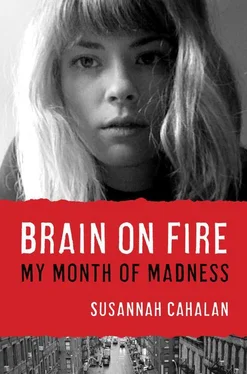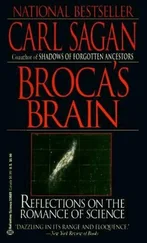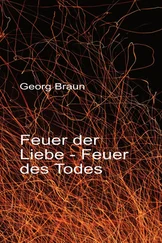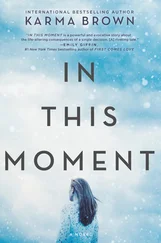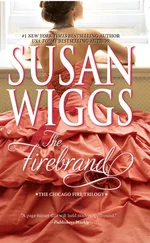. . .
Despite all this nerve-wracking, zombie-like behavior, James too, like Stephen, saw moments where the “old Susannah” would shine through. Everyone held out hope that I would eventually return. One evening when Hannah came to visit, we sat in the family room watching Blue Velvet, a movie by David Lynch, a favorite director of mine. As the first fifteen minutes of the movie played, James and Hannah bantered about its terrible acting. I said nothing, but much later, after they had moved on to a different conversation, I interrupted them to point out, “It’s on purpose. The acting. That was David Lynch’s style. It’s much better in Wild at Heart .”
James and Hannah quieted, nodding their heads solemnly. Though they didn’t speak about it that night, both would later remember this moment as another confirmation that my old personality was intact, just buried.
Besides the walks to Starbucks, the Friends episodes, and the drives to the ice cream parlor, I spent most of my time in a state of perpetual anticipation as I waited like a puppy for Stephen’s arrival on the commuter train to Summit.
Because I couldn’t drive, my Mom, Allen, or James had to chauffeur me to the station. One afternoon while my mother and I sat in the car, waiting for him, my mom pointed and said, “There he is! He looks so different!”
“Where?” I said, scanning the crowd. Only when he reached the passenger side window did I finally recognize him: He had shaved his beard and cut his shaggy, cheekbone-length hair into a dapper, slicked-back 1940s hairstyle. He looked even more handsome than usual. As I watched him enter the car, I was suddenly filled with an aching feeling of gratitude that I had found such a selfless, devoted person. It’s not as if I hadn’t known that all along; it was just that at that very moment, I couldn’t contain the deep love I had for him, not only for staying with me, but also for providing me with security and meaning at a very difficult time in my life. I had asked him many times why he stayed, and he always said the same thing: “Because I love you, and I wanted to, and I knew you were in there.” No matter how damaged I had been, he had loved me enough to still see me somewhere inside.
Though he claims he could see the old me, most other people found it hard to relate. A few days later, I agreed to attend a homecoming party for one of Stephen’s and my closest friends, Bryan, who had briefly returned home from Austin, Texas. When we arrived, the grill was going in Bryan’s mother’s backyard and adults of various ages sat around eating burgers, playing bocce ball, and chatting. As I joined the party with Stephen and his sisters, I felt the air get leeched from the room as everyone seemed to gawk at the sick girl. Though this was likely all in my mind—many of the people had no clue that I had been sick, and even more of them had never met me before—I felt as if I were the center of attention in the worst way.
Yet my friends who were there would later tell me that I seemed unnaturally happy, beaming a plastic and fixed ear-to-ear smile. Maybe that was some sort of self-preserving body armor, a mask to keep the frightening hordes at bay.
At the party, hardly anyone asked me about my hospital stay, though the people who had heard about it approached me diffidently, eyes downcast, seemingly shamed by their knowledge, however slim, of what had befallen me. To these friends, it was like losing me in plain sight while the substitute Susannah was still there to remind them of the person who I had been before. All the while, my mind encircled itself with questions: Did they hear I was in the hospital? Did they hear I was crazy? Instead of engaging, I found myself fixedly staring them down, unable to converse. Eventually I gave up trying and concentrated on eating the juicy watermelon and hamburgers cooked on the grill.
But I had my savior: Stephen. People called him the “Susannah whisperer,” because he seemed to sense what was unspoken. At the party, he stood by my side, never once letting me stray too far from his watchful gaze. When people who hadn’t been debriefed came up to chat with me, he took the reins in the conversation, not something that the normally laid-back, California-cool Stephen did, but something that was now necessary. When I couldn’t speak, he spoke for me. Like my plastic smile, Stephen became another layer in my protective armor.
At one point, an old friend, Colleen, who had heard about my hospital stay from Stephen’s sister Bridget, noticed that as I ate a piece of watermelon, the red juices dribbled down my chin and onto my dress. She felt conflicted: Tell me or let it be? She didn’t want to embarrass me, but she didn’t want to let me go on looking like a clueless child. Luckily, before she had to make the decision, Stephen wiped the watermelon juices from my chin.
After an hour at the party, I gave Stephen a look, and he nodded back knowingly. It was time to go.
My second organized social experiment occurred the last week of May at my stepbrother, David’s, wedding. I was initially supposed to be a bridesmaid and had purchased the dress just before I got sick, but after I got out of the hospital the bride gently suggested that it might be best if I no longer took part in the ceremony.
Obviously, I thought then, she’s embarrassed by me.
I realize now that she was acting out of concern, but it was proof to me then that I had become a burden. Normally I was someone people wanted to include—Stephen and I had even been voted “most fun couple” at one wedding we attended prior to my illness—but now I had become a source of shame. This stung and whittled away at my fragile self-worth, which had taken such a thrashing over the prior months.
Still, I was determined to prove to her and the rest of the wedding party that I still “had it.” I styled my hair with a straightening iron to cover up my biopsy scar and bought a bubble-gum-pink dress, while Stephen wore a mod-style suit with a skinny tie. A mere month after the reunion at Rachael’s house, going to the wedding represented a significant step forward in my recovery process. I was nearly past the period where I looked and acted noticeably awry, though my face was still puffy from the steroids and my words were still faltering and largely monosyllabic. If you didn’t look too closely, though, Stephen and I seemed like an ordinary hipster couple.
The ceremony took place in a manor in Hudson Valley, New York, where grapevines dangled along the gates and wildflowers bloomed as far as the eye could see. Stephen and I spent most of the party standing by the makeshift kitchen, where the caterers entered and exited carrying plates of hors d’oeuvres. I don’t know if it was the steroids, which can cause an increase in appetite, but I was ravenous.
At the beginning of the night, my mom made me promise that I would drink only one glass of wine. I all but rolled my eyes when I agreed and then went ahead and drank several flutes of champagne. If there’s one thing about me that has been confirmed by my illness, it’s my tenacity, or bullheadedness, or whatever else you want to call it. Even though my brain was still repairing itself and it’s undoubtedly dangerous to mix alcohol with antipsychotics, I insisted on drinking. I didn’t care how self-destructive it might be—this was something tangible that connected me to the “normal” Susannah. If the old Susannah had a glass of wine or two with dinner, so would this Susannah. I couldn’t read, could hardly make small talk, and couldn’t drive a car, but, dammit, I was going to have a few glasses of champagne at a wedding. My mother tried to stop me, but she knew she had no control over my vices: I was going to do what I pleased. Ultimately the wine represented independence, and everyone around me decided it was best not to stamp out what remained of my dignity.
Читать дальше
